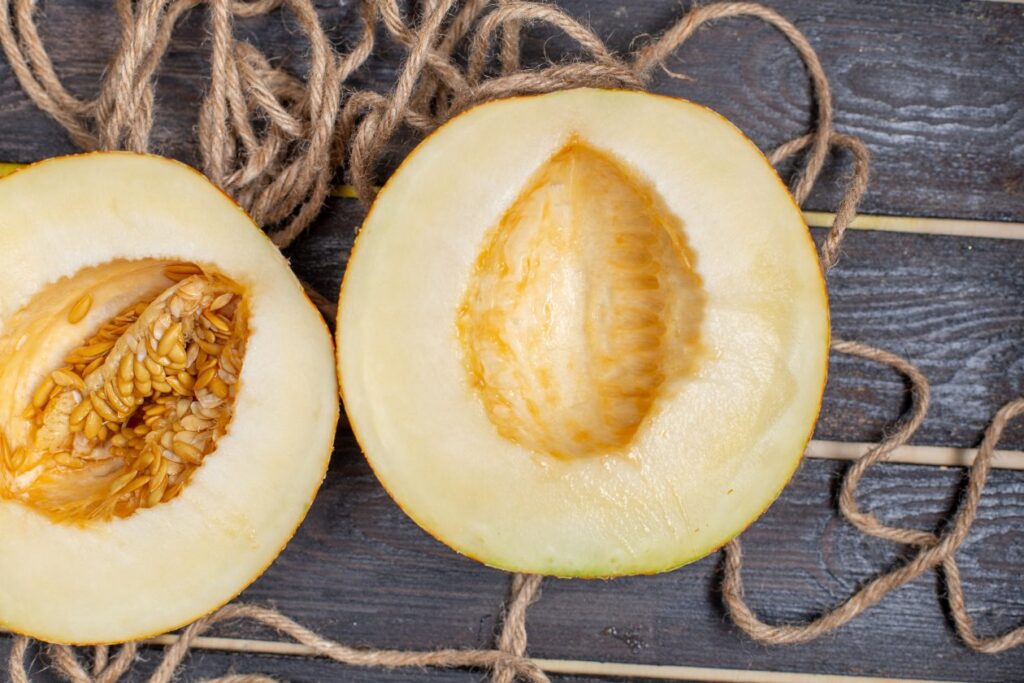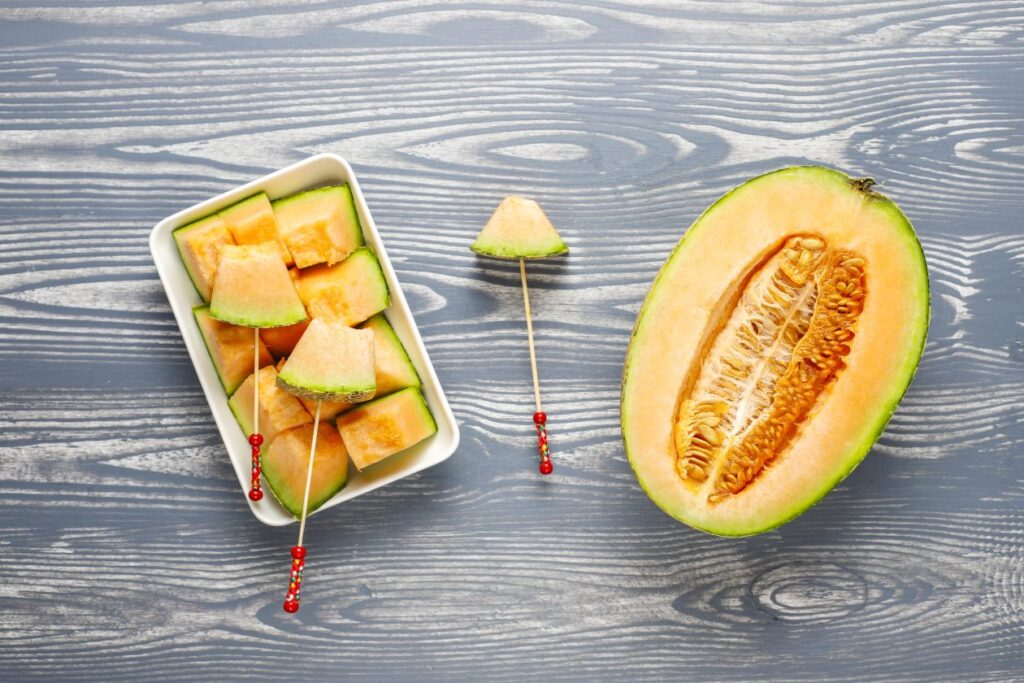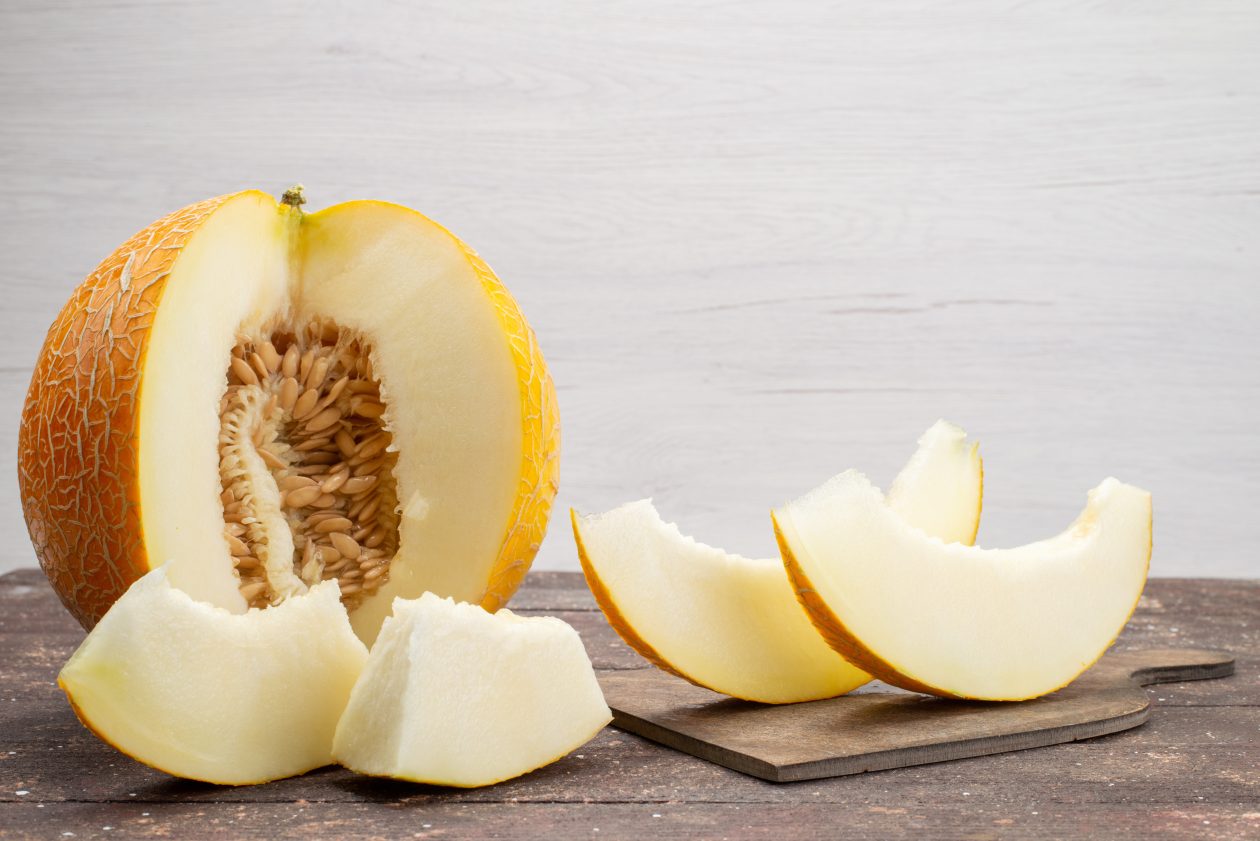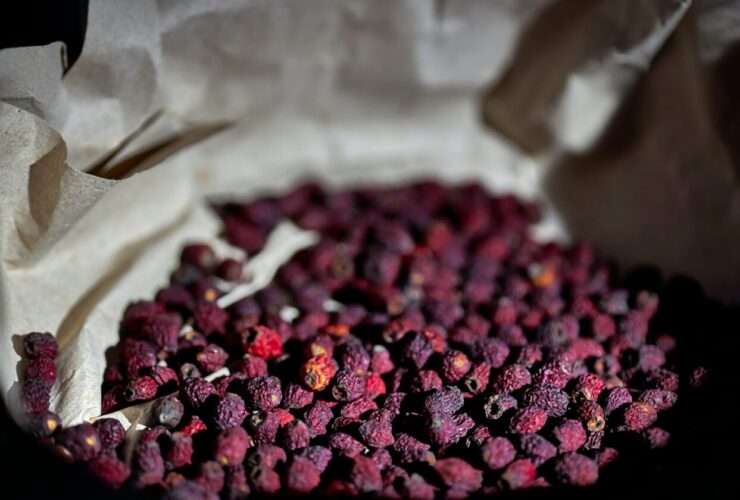Introduction
Honeydew is a popular fruit appreciated by people worldwide because of its luscious flesh and refreshing sweetness. The Cucumis melo species includes this juicy melon, distinguished by its pale green, somewhat ribbed skin, and sweet, aromatic flavor. Honeydew is a well-liked option for snacks, salads, and desserts because of its rich nutritional profile and well-hydrating qualities.
The low-carb, high-fat ketogenic diet, sometimes known as the “keto diet,” is intended to produce the metabolic state called ketosis. The keto diet attempts to change the body’s principal fuel source from glucose to ketones by significantly lowering carbohydrate intake and boosting consumption of healthy fats. This has several health advantages, such as better blood sugar regulation, weight loss, and increased cognitive performance.
Let’s address the most important question: Is honeydew suitable for keto? No, honeydew melon is not keto-friendly. The carbohydrate level of honeydew raises concerns regarding its compatibility with the ketogenic diet, which emphasizes low carbohydrate intake. The subsequent sections will explore the nutritional composition of honeydew its impact on ketosis, and provide helpful advice for ketogenic diet enthusiasts considering incorporating this fruit into their diets.
Understanding the Keto Diet
The ketogenic diet, sometimes referred to as the low-carb, high-fat eating plan, is intended to cause the body to enter a state of ketosis through altered metabolism. The main goal of the ketogenic diet is to bring about a state known as ketosis, in which the body uses fat rather than carbs as its main energy source. The keto diet aims to increase the consumption of good fats and substantially reduce carbohydrate intake. This can lead to several health benefits, such as improved blood sugar control, weight loss, and increased mental clarity.
The metabolic condition known as ketosis is defined by high blood ketone levels, which happen when the body starts burning fat reserves rather than carbs for energy. People have to limit their daily carbohydrate consumption to a minimum, usually 20–50 grams, to enter ketosis. The liver uses fat to produce ketones, which the body and brain can use as an alternate fuel source when there aren’t enough carbohydrates for energy. The cornerstone of the keto diet is reaching and staying in ketosis, which calls for rigorous adherence to low-carb, high-fat dietary guidelines.
Reducing carbohydrate intake is one of the main tenets of the keto diet, as it helps to induce and maintain ketosis efficiently. Although the body uses carbs as its main energy source, a ketogenic diet limits them to an absolute minimum to encourage fat-burning. People can lower insulin resistance, regulate blood sugar levels, and encourage fat loss by consuming fewer carbohydrates. To sustain good health and promote ketosis, it is imperative to prioritize high-quality sources of carbs, such as non-starchy vegetables and low-sugar fruits, while avoiding refined sugars and processed foods.
Nutritional Composition of Honeydew

Honeydew has a high nutritional content and is a great source of important vitamins and minerals for general health. With only one serving, this juicy fruit provides a substantial amount of the daily required consumption of vitamin C. Honeydew also has important minerals, such as potassium, necessary for electrolyte balance maintenance and healthy muscular function. Honeydew also contains other micronutrients, such as copper, folate, and vitamin K, all involved in bodily physiological processes. Including honeydew in your diet might offer a refreshing and natural way to obtain these essential elements.
Honeydew’s antioxidant concentration boosts its nutritional value and provides several health advantages. By reducing inflammation and oxidative stress, antioxidants shield cells from harm and lessen the chance of developing chronic illnesses. Flavonoids and phenolic compounds are among the antioxidants found in honeydew, which give it a vivid color and a pleasant flavor. People can enhance general well-being and strengthen their body’s natural defenses by frequently consuming honeydew.
Honeydew’s high water content is one of its best qualities, which makes it a great option for staying hydrated. Honeydew is a great way to replace fluids lost through sweat and other body processes because it contains 90% water by weight. Maintaining normal physiological function, aiding digestion, controlling body temperature, and improving cognitive function depends on getting enough water. Hydrating fruits like honeydew in a balanced diet can help people feel rejuvenated and invigorated all day.
Keto Considerations for Honeydew
It can be challenging to navigate the complexities of dietary choices, particularly for people adhering to strict regimens like the ketogenic diet, which call for clarification on whether or not certain items fall within their limitations. Many people adore honeydews for their juicy texture and pleasant flavor. But the main thing to be wary of with the ketogenic diet is how many carbohydrates it contains. To provide a solid answer, examining how honeydew affects ketosis, the metabolic state critical to the ketogenic diet’s success, is imperative.
Reducing carbohydrate intake to enter ketosis—a state in which the body burns fat rather than carbohydrates for energy—is the cornerstone of the ketogenic diet. Despite being refreshing and nutrient-rich, honeydew has a significant carbohydrate content. If taken in significant amounts, this may interfere with ketosis. Therefore, moderation and portion management are crucial when adding honeydew to a ketogenic diet. People can take advantage of the benefits of this delightful fruit and better control their ketosis levels by monitoring their consumption of carbohydrates from honeydew and other sources.
Because of its high carbohydrate content, honeydew may not be the most keto-friendly fruit, but keto dieters can still enjoy it in moderation. By exercising portion control, people can maintain their intended state of ketosis by ensuring that their consumption of carbohydrates from honeydew stays within reasonable bounds. Additionally, while promoting keto goals, experimenting with different low-carb fruit alternatives adds variety to the diet. People can enjoy the sweetness of honeydew responsibly and successfully navigate their keto journey by balancing consuming honeydew in moderation and combining other low-carb fruits.
Health Benefits of Honeydew

In addition to its delicious flavor and rich sweetness, honeydew is a great source of important vitamins and minerals that support good health. Packed with vitamin C, honeydew helps the body’s immune system and produces collagen, which helps the skin stay healthy and mend wounds. It also has high vitamin K levels, essential for healthy bones and blood clotting control. Another essential element in honeydew is potassium, which supports healthy heart and blood pressure management by assisting with fluid balance, neuron function, and muscle contractions. Honeydew is a valuable complement to a balanced diet because of its nutrient-dense qualities, which include key vitamins and minerals needed for optimum health.
Honeydew’s high concentration of phytonutrients like flavonoids and carotenoids gives it antioxidant properties and nutritious content. By neutralizing dangerous free radicals in the body, these antioxidants aid in the fight against oxidative stress and lower the chance of developing chronic illnesses. By consuming honeydew in your diet, you can promote cellular health, lessen inflammation, and minimize your chance of developing diseases like cancer, heart disease, and neurological illnesses. Honeydew’s antioxidant profile highlights its role as a nutrient-dense fruit that fulfills cravings and supports long-term health and well-being.
Honeydew provides great hydration advantages because of its high water content and natural electrolytes, especially during hot summer or after strenuous activity. Proper hydration is crucial for several body processes, such as digestion, temperature regulation, and nutrient delivery. The hydrating qualities of honeydew maintain optimal hydration levels and aid in replacing fluids lost through sweat, all of which enhance general health and well-being. Including honeydew in your diet can be a fun way to enjoy its tasty and nutritious advantages while staying hydrated.
Is Honeydew Keto Friendly?
Honeydew melon is not considered keto-friendly primarily because it contains a relatively high amount of carbohydrates. While it may seem like a healthy fruit choice, especially due to its hydrating properties and nutritional benefits, honeydew melon contains approximately 11.4 grams of net carbs per serving (equivalent to 10 honeydew balls). This carb content is too high for individuals following a strict ketogenic diet, which emphasizes very low carbohydrate intake to achieve and maintain a state of ketosis.
One of the main components of the ketogenic diet is the metabolic state known as ketosis, which is attained by restricting carbohydrates. It is the body using fat for energy rather than carbs, which causes the body to produce ketones. Eating meals heavy in carbohydrates, like honeydew, may prevent the formation of ketone bodies and cause a brief disruption of ketosis. Honeydew or other higher-carb fruits might cause a person following a strict ketogenic diet to go out of ketosis, which will take more time and effort to go back to the optimum metabolic state.
Because of its high carbohydrate content, honeydew might not be the best choice for hardcore keto dieters, but moderation can still allow for occasional enjoyment without impeding progress. Adding tiny amounts of honeydew to their diets within their daily carbohydrate limitations can add taste and diversity while keeping them in ketosis. Furthermore, combining honeydew with sources of protein or fat can lessen its effect on blood sugar levels and increase feelings of fullness. In the end, attentive eating and moderation are the keys for keto dieters to maintain their dietary goals while still enjoying a wide variety of nutrient-rich meals, such as honeydew and other higher-carb items.
Alternatives to Honeydew on the Keto Diet
Although honeydew’s greater carbohydrate content may make it less keto-friendly than other fruits, plenty of other options can satiate appetites without going against the rules of a ketogenic diet. Strawberries, raspberries, and blackberries are strong in fiber and antioxidants and low in carbohydrates, making them great options. Although it is technically a fruit, avocado is a terrific low-carb alternative rich in healthy fats. Many keto enthusiasts consider it to be a staple food. Consuming modest portions of fruits like watermelon or cantaloupe, which have lower carb counts than honeydew, can also help control carb intake when eaten in moderation.
Beyond fruit substitutes, various keto-friendly snack options are available to satiate hunger and supply nutrients without jeopardizing ketosis. Nuts and seeds provide a delightful crunch in addition to protein and healthy lipids, such as almonds, walnuts, and chia seeds. Popular options are cheese and charcuterie boards, which offer a range of flavors and textures at a low carb count. High-cocoa content dark chocolate provides rich flavor and antioxidants without raising blood sugar levels, so it’s a good option for people with sweet tooths who enjoy it in moderation. These substitutions can help you maintain your nutritional objectives while adding variety to your meals as part of a ketogenic lifestyle.
FAQ about Keto-Friendly Fruits
Q: Is honeydew melon high in carbs?
A: While honeydew melon is delicious and nutritious, it is relatively high in carbs compared to other fruits, making it less suitable for a strict ketogenic diet. A single cup of honeydew chunks contains around 16 grams of carbohydrates, with a significant portion coming from natural sugars. Therefore, individuals following a keto diet may need to moderate their intake of honeydew to stay within their daily carbohydrate limits.
Q: Is any melon keto-friendly?
A: Some melons are more keto-friendly than others. While honeydew and watermelon tend to be higher in carbohydrates, other melons, like cantaloupe, have a lower carbohydrate content. They may be more suitable for those following a ketogenic diet. However, portion control is key, and it’s essential to consider individual carbohydrate tolerance and overall dietary goals.
Q: What fruits are keto-friendly?
A: Keto-friendly fruits include avocados, which are rich in healthy fats and low in carbohydrates, making them a staple in the keto diet. Other options include berries like strawberries, raspberries, and blackberries, which are lower in carbs and high in fiber and antioxidants. Additionally, fruits like lemons, tomatoes, peaches, and star fruit can be moderately enjoyed on a keto diet due to their lower carbohydrate content.
Conclusion
In conclusion, honeydew melon should only be eaten in moderation on a ketogenic diet due to its increased carbohydrate content. While honeydew has important vitamins, minerals, and hydration advantages, those on a strict ketogenic diet might prefer lower-carb fruits like avocado and berries. As with any dietary decision, maintaining a balanced and long-term approach to nutrition requires giving individual preferences, variation, and moderation priority. You may make decisions that promote your health and well-being by paying attention to your body’s needs and remaining aware of your nutritional requirements, regardless of whether you decide to incorporate honeydew into your keto diet or look into other possibilities.
Reference
(1) U.S. DEPARTMENT OF AGRICULTURE – Melons, honeydew, raw
https://fdc.nal.usda.gov/fdc-app.html#/food-details/169911/nutrients
(2) Nutrition facts label for Melons, honeydew, raw
https://nutritiondata.self.com/facts/fruits-and-fruit-juices/1956/2
Was this helpful?

Joseph Emb, RDN
Founder of StyleVitally.com | Registered Dietitian & Wellness Advocate
What I Cover:
I’m passionate about connecting nutrition science and everyday wellness to help people live healthier, more vibrant lives. I write about evidence-based nutrition, mindful eating, sustainable lifestyles, and holistic well-being at StyleVitally.com.
My Background:
The University of Texas in Austin, where I earned my Dietetics diploma, laid the groundwork for my nutrition and health career. My training and hands-on experience taught me the science and art of using nutrition to enhance health and well-being.
Professional Journey:
I’m an RDN with lots of experience. I’ve helped people seeking tailored nutritional recommendations in clinical settings and community outreach programs. My constant learning and professional development ensure that my recommendations are always based on the latest evidence.
Ethical Commitment:
My practice prioritizes integrity. My content is transparent and objective, following the most significant ethical standards. I can give my audience unbiased advice because I’m not affiliated with food businesses or industry associations. I want to help people make informed health decisions that match their values and ambitions.
Join Me on the Wellness Journey:
Join me on the path to vitality and well-being, whether facing nutritional issues, seeking sustainable lifestyle changes, or simply wanting a better, happier you. We’ll discover how diet, mindfulness, and holistic well-being can maximize your potential.










Leave a Reply
View Comments